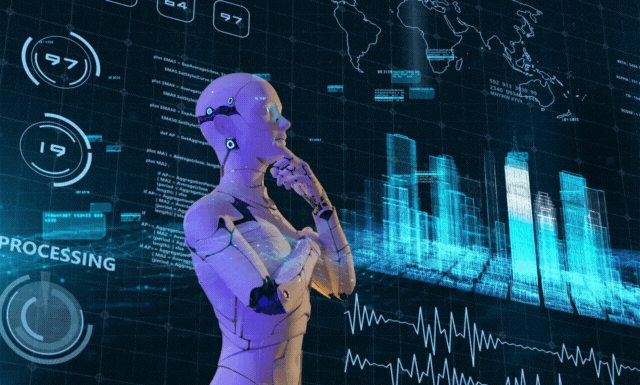Artificial Intelligence (A.I.) is transforming industries worldwide, and the live events sector is no exception. While A.I. is often associated with automation and efficiency, its potential in entertainment is vast and largely untapped. By integrating A.I. into live events, organizers can create experiences that are not only more interactive but also deeply memorable. Here’s how A.I. can be used in entertaining ways to elevate live events to new heights.

Personalized Interactions with Attendees
One of the most exciting applications of A.I. in live events is the ability to personalize interactions. Imagine attending a concert where an A.I. system recognizes you and tailors the experience to your preferences. This could include personalized greetings, song choices based on your music taste, or even interactive games that cater to your interests. A.I. can analyze data in real-time, allowing for spontaneous adjustments that make each attendee feel uniquely engaged.
Enhanced Visual and Audio Effects
A.I. can be utilized to create stunning visual and audio effects that respond to the audience’s reactions. For instance, an A.I.-powered light show can change colors, patterns, and intensity based on the crowd’s energy levels, measured through sound or movement. Similarly, A.I. can be used to manipulate audio effects, adjusting the acoustics or adding real-time enhancements to the music being played. This level of interactivity makes the event more immersive, ensuring that attendees are not just passive spectators but active participants.
Interactive A.I. Performers
The introduction of A.I. performers, such as robot dogs or holographic characters, adds a futuristic element to live events. These A.I. performers can interact with the audience, perform alongside human artists, or even take on hosting duties. By blending A.I. with traditional entertainment, event organizers can offer a unique experience that sets their event apart from the rest.

Real-Time Content Creation
A.I. can generate content on the fly, making live events more dynamic. For example, an A.I. system could create personalized videos or photos for attendees based on their interactions during the event. This content can be shared instantly on social media, extending the event’s reach and creating lasting memories for participants. Additionally, A.I. can analyze audience responses to different segments of the event, providing organizers with insights that can be used to improve future experiences.
A.I.-Driven Gamification
Gamification is a powerful tool for increasing engagement at live events, and A.I. takes it to the next level. A.I. can create adaptive games that change based on player performance, keeping the experience fresh and challenging. These games can be integrated into the event’s theme, offering prizes or incentives for participation. By incorporating A.I.-driven gamification, event organizers can ensure that attendees remain engaged throughout the entire event.
Seamless Event Management
Behind the scenes, A.I. can streamline event management, making the entire experience smoother for both organizers and attendees. A.I.-powered chatbots can handle ticketing, answer questions, and provide real-time updates. Additionally, A.I. can optimize event logistics, such as crowd control and scheduling, ensuring that everything runs efficiently. This not only enhances the attendee experience but also allows organizers to focus on creating unforgettable moments.
Conclusion: The Future of Live Events
A.I. is not just a tool for efficiency; it’s a catalyst for creativity and innovation. By integrating A.I. into live events, organizers can create experiences that are more personalized, interactive, and memorable. As A.I. technology continues to evolve, the possibilities for its use in entertainment are endless. The future of live events is bright, and A.I. is leading the way.
Whether you’re planning a concert, a corporate event, or a festival, consider how A.I. can transform your event into something truly extraordinary. The potential is limitless, and the time to embrace A.I. is now.


